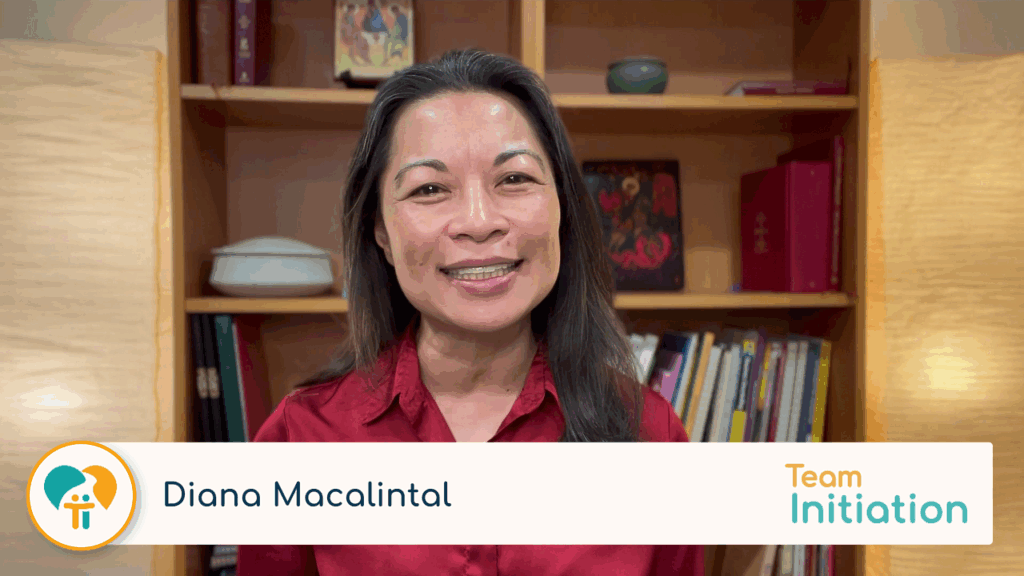
“When do your classes start?” For our seekers, it sounds like a perfectly reasonable question. After all, this is our fault. We have taught them these words so this is how they see the initiation process — take some classes and splash, now you’re a Catholic. But to my ears this question is a reminder of how much work we still have to do in catechizing our parishes and our people about the true nature of the initiation process. The initiation process is not a series of “classes” someone takes in order to “graduate” as Catholics. Rather, it is an apprenticeship both to the Catholic faith and to a Catholic community.
What words did Christ use?
Our initiation processes have been steeped in the language of academics for so long that use of these academic terms has become second nature. The trouble is this use of academic language has caused many catechists to lose touch with the ministerial nature of the process. The use of academic language prevents us, our parishioners, and our seekers from understanding what the initiation process is all about.
If we are to learn anything from our faith journey it’s that words matter. Jesus, the Word made flesh! When our Lord uses a word, it becomes! “This is my body,” and so it is. “This is the chalice of my blood,” and so it is. We see the power of these words used by Christ and his apostles, so why do we ignore the power of the words we use when talking about the initiation process?
The only way to truly reform our initiation processes is to expunge all academic language from our catechetical vocabulary.
This takes me back to my friend George who has been dealing with a lot of issues in his initiation process. When George went to his parish office he was told that “classes” started in late August. I have some big problems with this, especially because it created certain expectations from George’s perspective.
The only way to truly reform our initiation processes is to expunge all academic language from our catechetical vocabulary.
How to stop calling it “class”
Let’s start with the word “class.” This word carries a lot of baggage with it — none of which is appropriate to the initiation process. “Class” is a term used for academic endeavors. The word “class” assumes a specific start, a specific course of study, and a specific completion. It also refers to the group of people that are part of that endeavor. Worst of all, it assumes a passive position on the part of the participants — they listen while the teacher does all the talking. And if that weren’t enough, many parishes hold these “classes” in actual classrooms, which only reinforces the academic nature of the endeavor.
So how do we fix this? Simple — stop using the word “class” or “classes.” Instead call them “sessions” or “gatherings.” And if at all possible, take them out of a classroom. Use a conference room or the church hall. And by the way, sessions don’t need to be every week, nor do they need to follow any kind of “syllabus.” Set your schedule to follow the liturgical seasons and the needs of your parish.
Also, when referring to all those going through the initiation process, use the word “group” instead of “class.” Calling them a “class” implies that they’re all at the same level going through the same course of study. We and they need to see they’re not, from the start. The word “group” implies that each person’s path may be different and suggests a flexibility that allows individuals to join or leave the group anytime — when they are ready, not when we’re ready.
We need to reinforce the idea that it is the Mass that is the source and summit of all catechesis. When we view the initiation process as an academic exercise, the Liturgy becomes something secondary.
More than academics
Lastly, we need to reinforce the idea that it is the Mass that is the source and summit of all catechesis. When we view the initiation process as an academic exercise, the Liturgy becomes something secondary. Mass needs to come first and foremost with our sessions being secondary and subordinate to the liturgy.
When my friend George started his “classes” at his parish, he assumed he would be getting baptized at this next Easter Vigil. Not only was he never told otherwise (until the very last minute), but the use of academic language, the manner in which his “classes” were conducted, and the way he was treated by those conducting the process only reinforced his expectations. If we’re ever to advance the idea that catechesis is evangelization and not education, we need to change our language. Words matter.

















